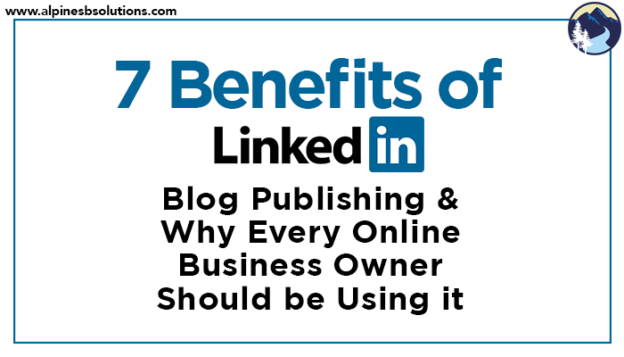Summertime presents unique challenges to working parents. You still need to work, but want to enjoy this precious time with your kids and not be chained to your desk. With a bit of proactivity, you can make sure you prioritize spending time with your family without letting your business suffer.
We all know that work-life balance is hard to find, but summer makes it even more challenging. Here are a few tips to help make it more manageable…and make sure you comment and share your ideas with us!
 Create a work schedule. It’s important to designate set uninterrupted work time and set no-work-allowed family time. Try to plan work time around times your kids are occupied, such as when they’re participating in a summer program or regular play dates. Each week you’ll know you’ve got guaranteed time to get work done and guaranteed time to spend with your kids.
Create a work schedule. It’s important to designate set uninterrupted work time and set no-work-allowed family time. Try to plan work time around times your kids are occupied, such as when they’re participating in a summer program or regular play dates. Each week you’ll know you’ve got guaranteed time to get work done and guaranteed time to spend with your kids.
Involve your kids with your work. Older kids can be taught complicated projects, but even younger kids can help with tasks like licking envelopes. Getting your kids to help you in the office is a win-win-win. You get to spend time with them, get assistance in your projects, and teach them valuable skills. And don’t forget your kids can teach you too (like how my 9th grade daughter is teaching me more about Snapchat!).

Connect with other work-at-home parents. Find other working parents and coordinate with them “shifts” for watching kids. Each parent can take an afternoon a week, which gives everyone in the group multiple blocks of uninterrupted work time.
Automate as much as possible. If you write a blog, create a batch of several evergreen posts you can use throughout the summer when you’re busier with family time. For social media, use a scheduling service like Hootsuite to plan several days’ worth of posts in one sitting.
Work smarter, not longer. Try to decrease your workload before summer hits or at the beginning of summer. Add a frequently asked questions page to your website to hopefully minimize the time you’ll spend answering the same client question over and over. Plan out goals and projects ahead of time so you don’t spend as much precious summer time brainstorming. Delegate tasks as much as possible to other employees. Consider hiring an intern who can work in exchange for college credit. They gain valuable work experience, and you spend less time working. Work a few less hours, but get back the lost income with these tasks to make money while you sleep.
Outsource. Are you using all your resources? Are you delegating task as you should be? If you have a Virtual Assistant, make sure you are using that service to the full extent, or maybe you need to retain more hours for the summer. If you haven’t tasks that you could outsource to a Virtual Assistant, make sure you hire yours right away.
 Summer time is a great opportunity to connect with your kids and make lasting memories. With a few simple strategies you can make sure time with family does not come at the cost of your business. If you want even more help with growing your business over the summer, delegate those tasks to Alpine Small Business Solutions! We’re here to help you with any part of business building. Just reach out with an email or phone call today.
Summer time is a great opportunity to connect with your kids and make lasting memories. With a few simple strategies you can make sure time with family does not come at the cost of your business. If you want even more help with growing your business over the summer, delegate those tasks to Alpine Small Business Solutions! We’re here to help you with any part of business building. Just reach out with an email or phone call today.





 In July of 2015, I was at a peak in my business, but something unthinkable happened. Unlike my mother’s slow and prolonged illness, this tragedy hit me hard, fast and I was completely blindsided. It was a beautiful summer day and like I often did, I went and enjoyed some live bluegrass music with my two daughters and their friends at this quaint outdoor area. The kiddos didn’t want to listen to the entire set list of music and they asked if they could go and record a short movie instead. They are an artistic bunch and often made short films on their
In July of 2015, I was at a peak in my business, but something unthinkable happened. Unlike my mother’s slow and prolonged illness, this tragedy hit me hard, fast and I was completely blindsided. It was a beautiful summer day and like I often did, I went and enjoyed some live bluegrass music with my two daughters and their friends at this quaint outdoor area. The kiddos didn’t want to listen to the entire set list of music and they asked if they could go and record a short movie instead. They are an artistic bunch and often made short films on their  easier to do business, but makes it easier to be transparent with them if a crisis occurs and you need to renegotiate timelines or contracts. I am blessed with amazing clients that understood life happens, and they were super supportive. When you’re authentic with clients, they will often be understanding and supportive in return. People understand life and shit happens, and being real will gain you more flexibility, trust, and respect with your clients in the long run.
easier to do business, but makes it easier to be transparent with them if a crisis occurs and you need to renegotiate timelines or contracts. I am blessed with amazing clients that understood life happens, and they were super supportive. When you’re authentic with clients, they will often be understanding and supportive in return. People understand life and shit happens, and being real will gain you more flexibility, trust, and respect with your clients in the long run. able to do some work away from the home office. While I wasn’t as productive as I was working in the office, I was still able to work some. It’s important not to allow your work to take you away from precious time with family. However, working some during a crisis can be really helpful. It gives you feelings of control and accomplishment to get work done, and can provide a temporary distraction from what you’re dealing with (which can give your heart and brain a much needed break).
able to do some work away from the home office. While I wasn’t as productive as I was working in the office, I was still able to work some. It’s important not to allow your work to take you away from precious time with family. However, working some during a crisis can be really helpful. It gives you feelings of control and accomplishment to get work done, and can provide a temporary distraction from what you’re dealing with (which can give your heart and brain a much needed break). memorialized and serve as a place for loved ones to share memories. A legacy contact is a designated person who can write a pinned post for the profile (such as a message on your behalf or memorial service information), respond to new friend requests, and update your profile picture and cover photo. They can also download a copy of what you’ve shared on Facebook. To add a legacy contact (
memorialized and serve as a place for loved ones to share memories. A legacy contact is a designated person who can write a pinned post for the profile (such as a message on your behalf or memorial service information), respond to new friend requests, and update your profile picture and cover photo. They can also download a copy of what you’ve shared on Facebook. To add a legacy contact (
 Create guidelines about
Create guidelines about  ng right and more about protecting the
ng right and more about protecting the  Dealing with difficult clients can be a challenge. If you need help with client communication, or any aspect of online
Dealing with difficult clients can be a challenge. If you need help with client communication, or any aspect of online 
 Eggs are one of the best
Eggs are one of the best  Fatty fishes are excellent for promoting productivity! Salmon, however, is the best of them all. Salmon has high omega-3 fatty acids content, which is useful for improving memory and mental performance. These fatty acids can help depression and fatigue, which can both inhibit productivity immensely. Fish has also been proven to improve concentration and your overall mood. Other fatty fish include trout, mackerel, herring, sardines, pilchards, and kipper. Although eating freshly prepared fish is the best method, a fish oil supplement can be taken to achieve a similar result.
Fatty fishes are excellent for promoting productivity! Salmon, however, is the best of them all. Salmon has high omega-3 fatty acids content, which is useful for improving memory and mental performance. These fatty acids can help depression and fatigue, which can both inhibit productivity immensely. Fish has also been proven to improve concentration and your overall mood. Other fatty fish include trout, mackerel, herring, sardines, pilchards, and kipper. Although eating freshly prepared fish is the best method, a fish oil supplement can be taken to achieve a similar result. Avocados are a natural stimulant for promoting blood flow. Consistent blood flow through your heart and brain fires up your brain cells. This is another healthy, fiber packed fat that improves your overall focus. The best part? There’s so many delicious ways to prepare an avocado but their buttery flavor is amazing on their own!
Avocados are a natural stimulant for promoting blood flow. Consistent blood flow through your heart and brain fires up your brain cells. This is another healthy, fiber packed fat that improves your overall focus. The best part? There’s so many delicious ways to prepare an avocado but their buttery flavor is amazing on their own! Green tea is a natural energy enhancer and it comes without the negative side effects of other energy sources, such as the caffeine crash you get from coffee or energy drinks. However, the best (and more delicious) way to consume green tea is Matcha. Matcha is unique because it’s the entire leaf ground into a fine powder then made into a creamy tea, whereas other teas the leaves are steeped in hot water. By consuming the leaf as a whole, it provides fiber and polyphenols, a family of powerful antioxidants. It’s also a lot tastier—green tea ice cream is made from Matcha and if you haven’t tried it, I highly recommend it.
Green tea is a natural energy enhancer and it comes without the negative side effects of other energy sources, such as the caffeine crash you get from coffee or energy drinks. However, the best (and more delicious) way to consume green tea is Matcha. Matcha is unique because it’s the entire leaf ground into a fine powder then made into a creamy tea, whereas other teas the leaves are steeped in hot water. By consuming the leaf as a whole, it provides fiber and polyphenols, a family of powerful antioxidants. It’s also a lot tastier—green tea ice cream is made from Matcha and if you haven’t tried it, I highly recommend it. Finally, water. Now I know this isn’t a food, but it is important to mention that the amount of water intake significantly influences your health and productivity. Our body is made up of over 70% water and throughout the day, the water in our body slowly depletes. If you don’t drink enough water to replenish the lost liquid, your brain and other functions suffer the consequences. By devoting the energy to ensure you are drinking at least 8 glasses of water per day will give your brain the fuel it needs to be more focused and think more clearly.
Finally, water. Now I know this isn’t a food, but it is important to mention that the amount of water intake significantly influences your health and productivity. Our body is made up of over 70% water and throughout the day, the water in our body slowly depletes. If you don’t drink enough water to replenish the lost liquid, your brain and other functions suffer the consequences. By devoting the energy to ensure you are drinking at least 8 glasses of water per day will give your brain the fuel it needs to be more focused and think more clearly.
 commitment. While it’s usually recommended businesses maintain a blog, it’s not always feasible for every company. In those situations, publishing to LinkedIn is a great alternative. Employees can publish from their LinkedIn pages and then share to the company page to gain benefits of content marketing with less of a time commitment than maintaining a company blog.
commitment. While it’s usually recommended businesses maintain a blog, it’s not always feasible for every company. In those situations, publishing to LinkedIn is a great alternative. Employees can publish from their LinkedIn pages and then share to the company page to gain benefits of content marketing with less of a time commitment than maintaining a company blog. view a blog post given the high volume of spam posts and not secure websites on the Internet. Posts published on
view a blog post given the high volume of spam posts and not secure websites on the Internet. Posts published on 
 This seems like a no-brainer but as a small business owner, it’s easy to put the equipment aside, forget about it and worry about all the other things on your to-do list. Then when push comes to shove, you set up last minute only to find out– %$#@! Technical difficulties! Please get your video, microphone, and programs all set-up well in advance and practice using them with friends and coworkers! That way if you come across any issues you can call over your techie friends to help you set it up and you’ll know how everything works before the big day comes. It is best to make sure you are super confident in the
This seems like a no-brainer but as a small business owner, it’s easy to put the equipment aside, forget about it and worry about all the other things on your to-do list. Then when push comes to shove, you set up last minute only to find out– %$#@! Technical difficulties! Please get your video, microphone, and programs all set-up well in advance and practice using them with friends and coworkers! That way if you come across any issues you can call over your techie friends to help you set it up and you’ll know how everything works before the big day comes. It is best to make sure you are super confident in the  Let’s face it, you’re not a jack of all trades, and you are definitely not a designer! Designing and digital marketing are really in-depth processes, and when they are done right, it is very successful! Leave this to the pros to help
Let’s face it, you’re not a jack of all trades, and you are definitely not a designer! Designing and digital marketing are really in-depth processes, and when they are done right, it is very successful! Leave this to the pros to help  Different States, Countries, and Time zones – Oh my! The number of guests you will be interviewing during your summit may be shocking. Four to Five speakers will not suffice. Expect to be interviewing around 25-30 people in your industry. Trying to
Different States, Countries, and Time zones – Oh my! The number of guests you will be interviewing during your summit may be shocking. Four to Five speakers will not suffice. Expect to be interviewing around 25-30 people in your industry. Trying to 
 Unlike podcasts, a virtual summit requires a webcam. High quality helps to engage and keep your viewers interested. While most laptops, desktops and phones do have a webcam built in, they are usually not the best quality. Some smart phones do have a great camera, but lack in microphone quality. Besides, it’s much easier to manage broadcasting when you have a set-up at your computer station. Trying to do it all mobile proves to be a challenge.
Unlike podcasts, a virtual summit requires a webcam. High quality helps to engage and keep your viewers interested. While most laptops, desktops and phones do have a webcam built in, they are usually not the best quality. Some smart phones do have a great camera, but lack in microphone quality. Besides, it’s much easier to manage broadcasting when you have a set-up at your computer station. Trying to do it all mobile proves to be a challenge. Webcams almost always come with a built-in microphone, but again the quality will never be as good than if you invest in a separate USB microphone. A microphone is just as important as your video; what good is a virtual summit if nobody can understand a word you are saying? You do not need to dive into professional recording equipment for this. Just look for a microphone that is recommended for podcasts and gaming with noise cancellation.
Webcams almost always come with a built-in microphone, but again the quality will never be as good than if you invest in a separate USB microphone. A microphone is just as important as your video; what good is a virtual summit if nobody can understand a word you are saying? You do not need to dive into professional recording equipment for this. Just look for a microphone that is recommended for podcasts and gaming with noise cancellation. It doesn’t matter what video editing software you use. It is up to you to use whatever tool you feel most comfortable working in. There are complex video editing software costs hundreds of dollars, but there are many free options as well. If you have a Mac computer your computer already comes with
It doesn’t matter what video editing software you use. It is up to you to use whatever tool you feel most comfortable working in. There are complex video editing software costs hundreds of dollars, but there are many free options as well. If you have a Mac computer your computer already comes with You might have to get creative in how you sell your all-access pass because your customers will need a way to log-in to the membership site. An example could include adding these customers to a separate mailing list and giving them a log-in and password to the membership site. This same mailing list could be used to market a new product/service as mentioned in the last article.
You might have to get creative in how you sell your all-access pass because your customers will need a way to log-in to the membership site. An example could include adding these customers to a separate mailing list and giving them a log-in and password to the membership site. This same mailing list could be used to market a new product/service as mentioned in the last article.
 An all-access pass is to your virtual summit as Netflix is to tv shows. This is the most popular way you can increase your revenue via virtual summits. Some people will not able to attend your virtual summit during your limited broadcasting event due to a busy schedule, sickness, or anything else life throws their way. However, these customers still crave the information!
An all-access pass is to your virtual summit as Netflix is to tv shows. This is the most popular way you can increase your revenue via virtual summits. Some people will not able to attend your virtual summit during your limited broadcasting event due to a busy schedule, sickness, or anything else life throws their way. However, these customers still crave the information! In essence, your virtual summit is an event. This is an amazing opportunity for companies to financially support you in exchange for publicity. There’s a few ways in which you can implement this, either by displaying their logo on your home page or making mention during your interviews.
In essence, your virtual summit is an event. This is an amazing opportunity for companies to financially support you in exchange for publicity. There’s a few ways in which you can implement this, either by displaying their logo on your home page or making mention during your interviews. After your summit is done broadcasting, you will have a shiny, new, email list of followers! They will be enthusiastic to learn more about your topic and seek more of the content you offer. This is absolutely a great opportunity to influence this email list and
After your summit is done broadcasting, you will have a shiny, new, email list of followers! They will be enthusiastic to learn more about your topic and seek more of the content you offer. This is absolutely a great opportunity to influence this email list and 
 It’s the paradox of the entrepreneur life. You hold autonomy over your schedule, but you should use that autonomy to set restrictions. Ask any successful entrepreneur and they will tell you a schedule is key (not convinced? Check out
It’s the paradox of the entrepreneur life. You hold autonomy over your schedule, but you should use that autonomy to set restrictions. Ask any successful entrepreneur and they will tell you a schedule is key (not convinced? Check out If you are lucky enough to have a storage area, pack it to the brim with discount supplies. If you haven’t already, make sure your supplies are organized and easily accessible.
If you are lucky enough to have a storage area, pack it to the brim with discount supplies. If you haven’t already, make sure your supplies are organized and easily accessible. Productivity hacks are great. They let you work smarter, not harder. Pick a few new productivity tricks to try out this school year. You can even pick a new trick each month to continually make yourself more effective.
Productivity hacks are great. They let you work smarter, not harder. Pick a few new productivity tricks to try out this school year. You can even pick a new trick each month to continually make yourself more effective.
 As an entrepreneur, you are already stretched pretty thin. I get it! The last thing you want is another item on your to-do list. Fortunately, this one really does only take a few minutes a day. If you need to, download the LinkedIn app on your phone so you can update it while waiting in line at the grocery store or during your commute.
As an entrepreneur, you are already stretched pretty thin. I get it! The last thing you want is another item on your to-do list. Fortunately, this one really does only take a few minutes a day. If you need to, download the LinkedIn app on your phone so you can update it while waiting in line at the grocery store or during your commute. At some point each week, make sure you are completing the following tasks.
At some point each week, make sure you are completing the following tasks. Each month, take the time to accomplish the following tasks.
Each month, take the time to accomplish the following tasks. Each quarter, take time to comb over your profile and make any necessary tweaks.
Each quarter, take time to comb over your profile and make any necessary tweaks.